
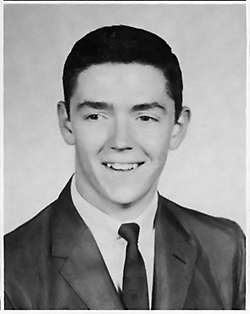
Hats Off!
~~~~~~~~~~~~~~~~~~~~~~~~~~~~~~~~~~~~~~
YALE NEWS
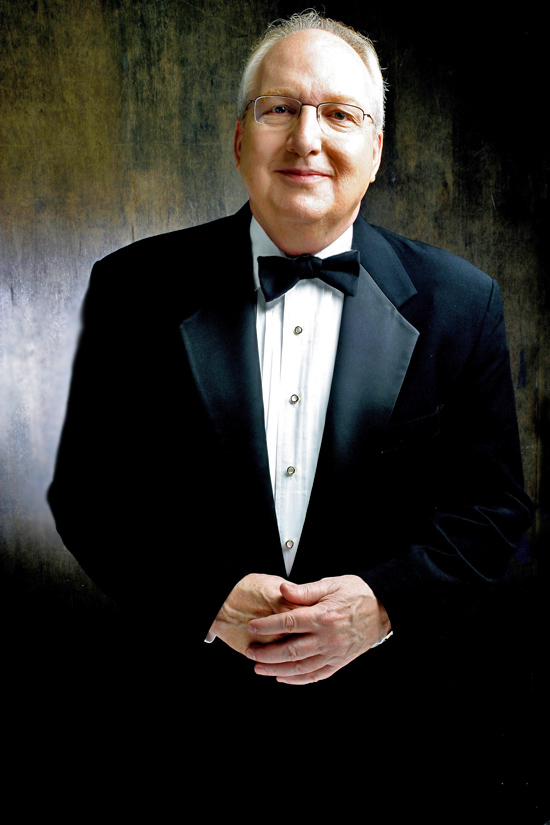
Music At Yale
Robert Blocker
Returns
|
|
President Richard C. Levin announced on May 1 that Robert Blocker would return to lead the School of Music on July 1. During his tenure as dean from 1995-2005, Blocker was credited with reestablishing the School of Music as one of the world's premier institutions for the professional training of performers and composers. Among his many notable accomplishments was the quadrupling of the school's endowment, an extensive plan for revitalizing facilities, and significant increases in applications to the school. Under Blocker, the percentage of students accepting offers of admission reached a historic high. Blocker made outstanding appointments to the School of Music faculty as dean, renewing the artistic programs in percussion, horn, and composition. He also created an international advisory board to serve the school. Robert was an extraordinary dean who brought the School of Music to the highest level of prestige, Levin said. As we searched for a new dean, we were seeking someone of Robert's vision, talent, energy and accomplishment. We have surpassed that goal by welcoming Robert back to the School he led so ably. Last November, Yale announced that the School of Music had received a $100 million gift from a donor who wished to remain anonymous. Blocker worked closely with Levin to attract that gift, which has allowed the School to subsidize fully the tuition of all students at the School, and will support other important advances. Blocker's return will allow him to see and enjoy the fruits of that gift. Dean Blocker's legacy also included serving an indispensable role in the major renovations of the School's facilities. His new tenure will allow him to oversee the exquisitely restored Sprague and Leigh Halls, and complete the new "music campus" by joining President Levin in securing donor support for the renovation of Hendrie Hall. "Robert has built community as effectively as he has renovated buildings, Levin said. The fall convocation, the annual dinner, town meetings, and the student tailgate are emblematic of the attention Robert gave to creating a stronger community for those at the School of Music." Blocker spent last year as provost and vice president of academic affairs at Southern Methodist University in Dallas. He held professorial appointments in music at the Meadows School of the Arts and in management at the Cox Business School at SMU. Blocker, one of the nation's leading spokespersons on the arts and their relation to the business community, has contributed to New Haven by serving on the boards of the New Haven Symphony, the New Haven Business/Arts Alliance, and the Neighborhood Music School. Blocker, who maintains an active international concert schedule, holds a bachelor's degree from Furman University and Master of Music and Doctor of Musical Arts degrees from the University of North Texas. Prior to coming to Yale in 1995, Blocker was at the University of California at Los Angeles, where he served as the first dean and professor of the School of the Arts and Architecture and as adjunct professor of management. |
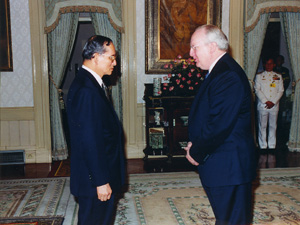
Yale School of Music President
Robert Blocker
Presents YALE Award to
His Majesty
King Bhumibol of Thailand at
the Bangkok Royal Palace.
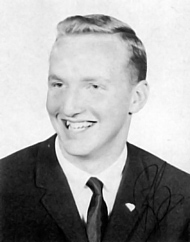
For Additional Info On
Robert's International Concert Schedule
Click Next Line:
http://www.robertblocker.org
*_*_*_*_*_*_*_*_*_*_*_*_*_*_*_*_*_*
Bess and Lloyd
From your classmates and many friends of
The Class of '64!

In the words of Bess (Walker) Fitzgerald.......
It took us 42 years to get it right!
Married: April 10, 2010
~~~~~~~~~~~~~~~
CLASSMATE SIGHTING...
By Vic Boudolf
So the other day we are at Bessengers Barbecue,
and this fellow walks up to me and says -- "this
is your memory challenge for today, do
you know who I am"? I smiled and
replied "Alan Garfinkel, but you changed
your name to something else what
is that"? He said "Gordon", and we
had a nice conversation. He was visiting
his father and had his wife, daughter, and
very cute granddaughter with him.
I think I sold his wife on coming to
the next reunion, but I know his dad
will be there :-)
(SMALL WORLD!)
**************************

Be well and God Bless You,
Alan
<><><><><><><><><><><>
You know, it's a wonderful thing
as time goes by...
to be with someone who
looks in your face when
you've gotten old -
and still sees - what you
think you look like.
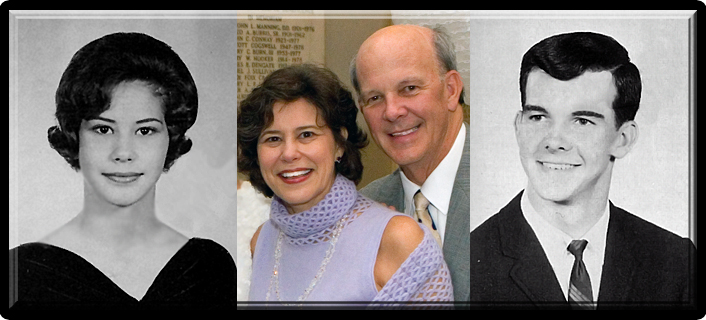
From the pens of Willa and Kenny Burdette...
Lily Tomlin once said, “I always wanted to be somebody, but I should have been more specific.” Well, I did have several specific names in my mind growing up: Annette Funicello, Audrey Hepburn, and Debbie Reynolds were a few of my idols of the day.
I was safe "Under God"
When I stood and said the Pledge.
"I Like Ike" my button declared:
Our world in '53 was gilded-edge.
Now in October of '54
With songs that touched your heart;
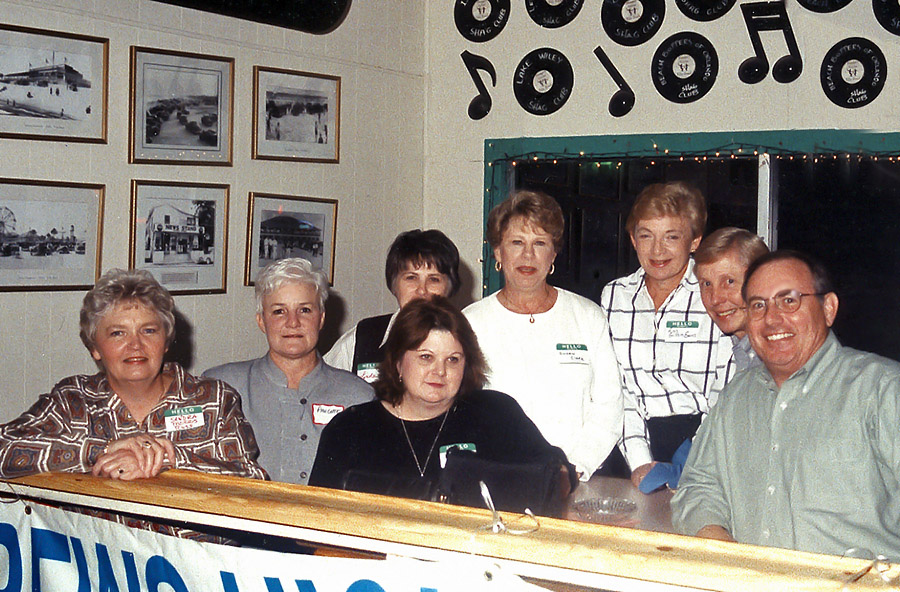
See you at the 45 and Roll with the Rocks!!
********************************
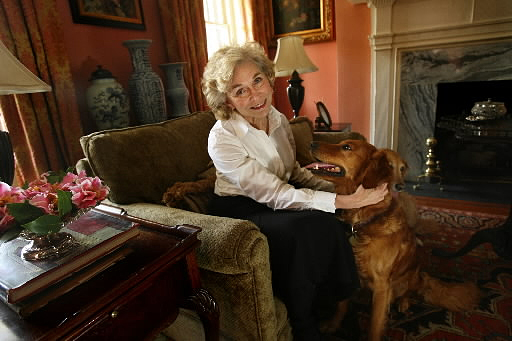
THE POST & COURIER
Stem cell future
Those touched by diseases place hopes in research
The Post and Courier
Editor's Note: This is one in an occasional series of articles devoted to medical ethics. In it, the significance of President Barack Obama's March 9 executive order concerning stem cell research funding is considered by two prominent bioethicists and others concerned with the issue.
Maybe Pamela Quattlebaum's Parkinson's disease was triggered by a concussion she suffered after falling from a horse during a long-ago fox hunt.
She's got good reason to think so. A 2003 study published by the American Academy of Neurology found that those who have experienced a head injury are four times more likely to develop the disease than those who have never had a head injury. The risk increases eightfold for people who have required hospitalization for head trauma, and it increases 11-fold for patients who've been injured severely.
Quattlebaum, 62, was diagnosed with Parkinson's in 1985 when she was only 38. The disease has progressed slowly but inexorably. Early on, she avoided thinking about it and avoided others with the disease.
"The less I did about it, the happier I was," she says.
But she feels differently now. Accustomed to the degenerative nature of her condition, and fresh from her second battle with breast cancer, serious disease isn't a scarlet letter. It's pervasive.
For Quattlebaum and millions of others struggling with disease and injury, stem cells might contain a key that unlocks a medical future of successful therapies and cures.
But if other medical research is any indication, it will take many years of careful study and experimentation before useful treatments are developed.
And then there are the ethical considerations.
The advantage of using adult stem cells is that the source is an individual with whom the genetic composition of the cells is compatible, according to the National Institutes of Health. Since the adult stem cell is derived from a living person, often for use by that person, research and therapies that rely on them are not considered controversial.
Embryonic stem cells, cultivated at the five-day-old blastocyst stage, are more abundant, more flexible and develop faster in the laboratory. They require less manipulation than adult stem cells, and they are more likely to cure genetic disorders. But to get at the cells, the embryos are destroyed.
On March 9, President Barack Obama signed an executive order lifting the restrictions on federal funding for embryonic stem cell research that had been imposed by former President George W. Bush in 2001. Quattlebaum said the policy change comes as a relief. So long as clear research guidelines are in place, she has no qualms about the ethics involved; stem cells offer great promise, and people who struggle with disease should be the priority, she said.
"There are people already alive who can use them and who desperately want them," Quattlebaum said. "It's probably too late for me."
FEMALE VOCAL ARTISTS OF THE YEAR
Class of '64
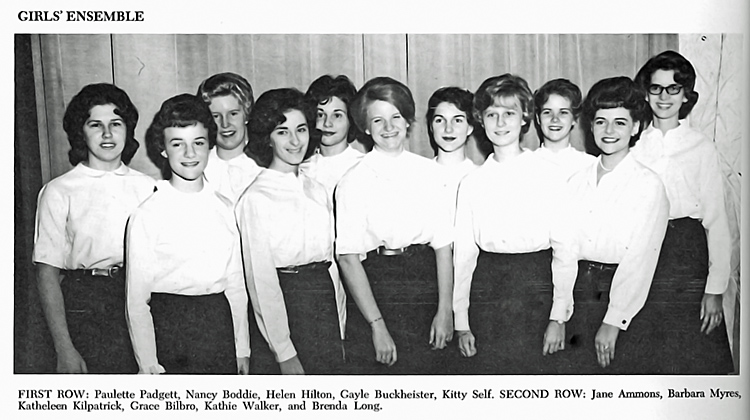
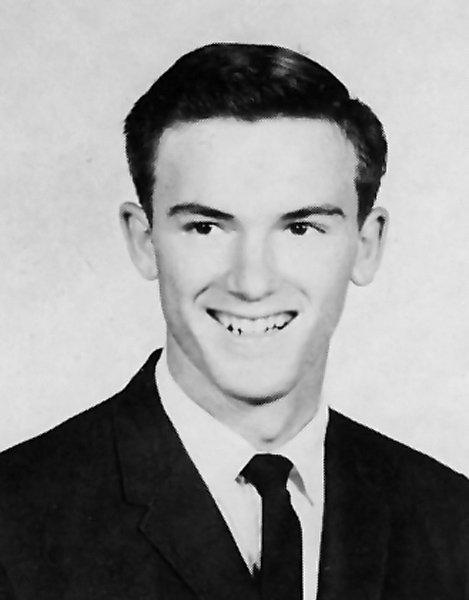

We have been wondering what ever
happened to Perry White.........
Now finally........... Heeeerrrrrreeee's PERRY! And best of all, he is doing just fine!
He and his prize setter Sadie (pictured) welcome Classmate's calls or email at any time.
>*<>*<>*<>*<>*<>*<>*<>*<>*<>*<
HITS and ARTISTS
Class of '64
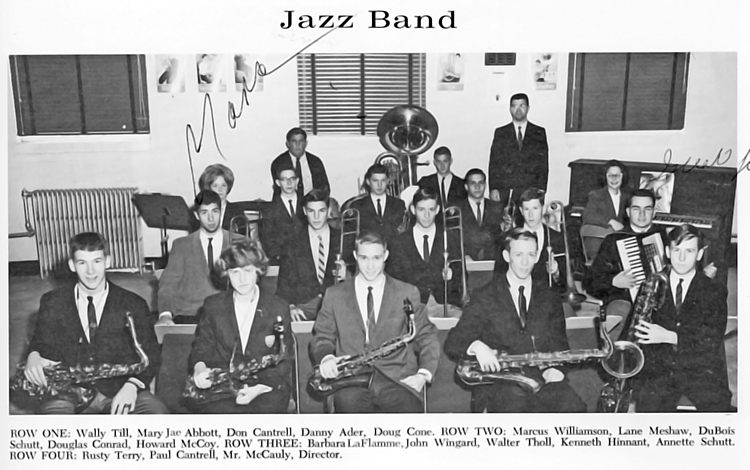
BILLBOARD TOP-40 HITS - 1964
|
Position |
Song |
Artist |
|
1 |
I Want To Hold Your Hand |
Beatles |
|
2 |
Can't Buy Me Love |
Beatles |
|
3 |
There! I've Said It Again |
Bobby Vinton |
|
4 |
Baby Love |
Supremes |
|
5 |
Oh, Pretty Woman |
Roy Orbison |
|
6 |
The House Of The Rising Sun |
Animals |
|
7 |
Chapel Of Love |
Dixie Cups |
|
8 |
I Feel Fine |
Beatles |
|
9 |
She Loves You |
Beatles |
|
10 |
I Get Around |
Beach Boys |
|
11 |
Come See About Me |
Supremes |
|
12 |
Where Did Our Love Go |
Supremes |
|
13 |
Do Wah Diddy Diddy |
Manfred Mann |
|
14 |
My Guy |
Mary Wells |
|
15 |
A Hard Day's Night |
Beatles |
|
16 |
Rag Doll |
4 Seasons |
|
17 |
Hello, Dolly! |
Louis Armstrong |
|
18 |
Mr Lonely |
Bobby Vinton |
|
19 |
Everybody Loves Somebody |
Dean Martin |
|
20 |
A World Without Love |
Peter & Gordon |
|
21 |
Ringo |
Loren Greene |
|
22 |
Love Me Do |
Beatles |
|
23 |
Leader Of The Pack |
Shangri-Las |
|
24 |
Twist And Shout |
Beatles |
|
25 |
You Don't Own Me |
Lesley Gore |
|
26 |
Dancing In The Street |
Martha & Vandellas |
|
27 |
Bread And Butter |
Newbeats |
|
28 |
Memphis |
Johnny Rivers |
|
29 |
Last Kiss |
Frank Wilson |
|
30 |
She's Not There |
Zombies |
|
31 |
My Boy Lollipop |
Millie Small |
|
32 |
Do You Want To Know A Secret |
Beatles |
|
33 |
Dawn |
Four Seasons |
|
34 |
Suspicion |
Terry Stafford |
|
35 |
Please Please Me |
Beatles |
|
36 |
Popsicles And Icicles |
Murmaids |
|
37 |
Out Of Limits |
Marketts |
|
38 |
Come A Little Bit Closer |
Jay & Americans |
|
39 |
Love Me With All Your Heart |
Ray Charles Singers |
|
40 |
The Little Old Lady |
Jan & Dean |
*****************
**************
MALE VOCAL ARTISTS OF THE YEAR
CLASS OF '64
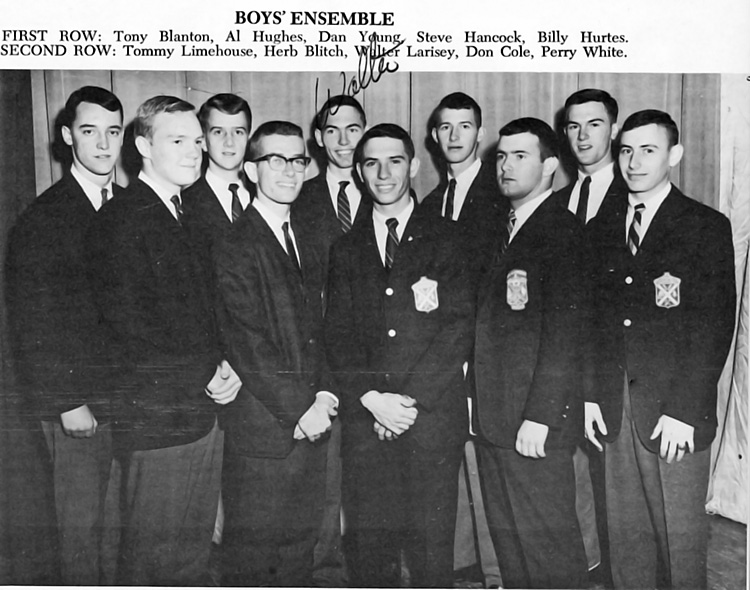
<*><*><*><*><*><*><*>
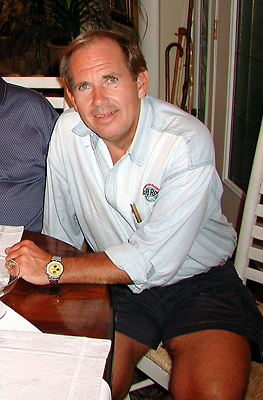
When I was a kid, and TV was young too, one of my Dad's favorite programs was "The Life Of Riley" starring William Bendix. 'Ol Riley was always getting his dose of life's predicaments, and no matter what the outcome would be, he always closed each episode with the remark (as he scrunched up his face) - "What a revoltin' development this is!" Fifty-plus years later, I am beginning to know exactly what he meant.
What it all comes down to is this: Just what kind of a person do I want to be as I move on in my seventh decade? I have personal friends and peers who have very strong feelings and clear cut ideas on this subject, and I also have those around me who never seem to give it much thought. It is true that I only have ‘this moment in time’ and that planning definitive outcomes without flexibility is risky business. However, making plans and having goals is very much a part of increasing my chances of successfully and positively dealing with whatever should come my way. Am I content to just drift along and ‘go with the flow’ to the point of ignoring the obvious, always making excuses as to what I should have done and didn’t? Or do I want to continue to participate in my life's course and direction and stay in the game and at least have the satisfaction of making an honest effort to go forward. No longer do I believe in the idea of a ‘status quo’ - as I am either going forward or sliding backward. As much as I might like it, for me, there is no dead calm neutral.
Could’a/Would’a/Should’a just doesn’t seem to be as important to me anymore. What is important is having the awareness of what I hope to do from this moment on, - and then acting on that awareness. I also truly hope that all of you, my friends and peers, will find your own paths to a healthy, contented life in the many years to come.
Steve Sopko
*********************************************************

Click on the Following Link:
>>>>>>>>>>*****<<<<<<<<<<
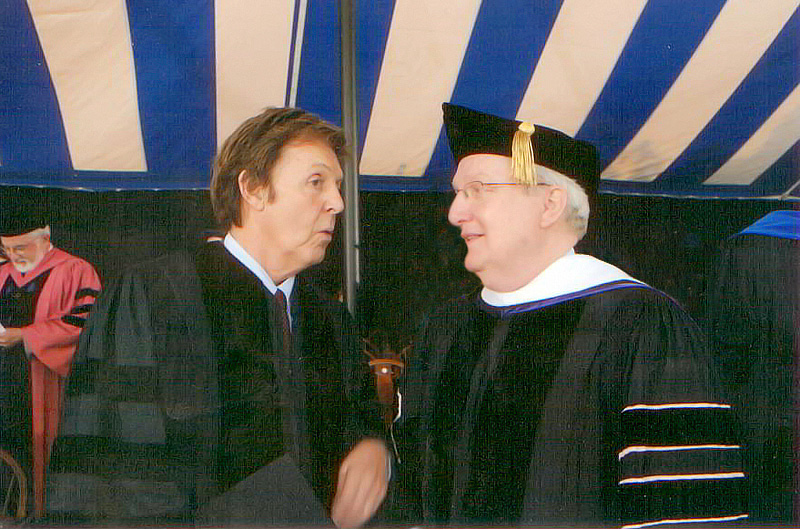
Masters of Music
Sir Paul McCartney & Robert Blocker
*****************************

EIGHTY IS THE NEW FIFTY
by Daniel Gross
NW
June 16, 2008
Have you noticed that CNBC is dominated by frisky septuagenarians? Last Wednesday, Carl Icahn, the 72-year-old corporate raider turned hedge-fund manager/shareholder activist, was terrorizing the whippersnappers at Yahoo, accusing the executive team of foolishly torpedoing a merger with Microsoft. The day before, the network aired testimony of legendary trader George Soros 77, who was lecturing Congress on the oil spike. Earlier in the month, Warren Buffett's annual Berkshire Hathaway meeting, known as Woodstock for Capitalists—with Buffett, 77, strumming a ukulele rather than Jimi Hendrix wailing the national anthem—received blanket coverage. Kirk Kerkorian, 91, who amassed big stakes in Chrysler and General Motors and agitated for change, is amassing a large stake in Ford.
This isn't America's business channel. It's "Cocoon."
Our culture relentlessly celebrates youth. But in the corporate world, 80 is the new 50. The exploits of these Sunshine Boys and advances in medicine make the retirement age of 65 seem like a relic. And in fact, it is. When Otto Von Bismarck established Germany's—and the world's—first social-welfare system in the 1880s, "he had to pick an age at which people were so enfeebled and disabled, they couldn't work," says Ken Dychtwald, chief executive officer of the consulting firm AGEWAVE, which specializes in aging and the workplace. Bismarck chose 70. "At the time, the average life expectancy in Europe was about 45." In 1916, Germany reduced the age to 65.
Since then, this arbitrary cutoff date has calcified into a thick gray line. Until recently, aging big-shot executives were generally happy to play golf, become ambassadors or just fade away. Today, not so much. Like a stage mother, Jack Welch, 72, nearly seven years removed from the top post at General Electric, is lecturing successor Jeffrey Immelt from the wings. The rise of private-equity firms and hedge funds has effectively created a sort of seniors tour for successful managers. "This is just not a cohort that's all that excited about stepping into the world of 24/7 recreation," says Jeffrey Sonnenfeld, a Yale management professor who founded the Chief Executive Leadership Institute.
Most Type-A M.B.A.s could probably outpace these guys in a 10K. (Self-proclaimed workout stud Sumner Redstone, the 85-year-old chairman of both Viacom and CBS, might give the youngsters a run for their money.) But these are marathon men, not the sprinters who thrive during bubbles. In recent months, fiftysomething CEOs of Wall Street firms and large banks have been decimated by the credit crunch, just as twentysomething tech stars were crushed in the 2001 NASDAQ crash. Unlike their younger counterparts, today's headline-making grandparents have experience managing through the last serious oil shock and prolonged period of financial pain in the 1970s. Kirk Kerkorian began his career during the Great Depression. These rock stars have also proved willing to learn a repertoire beyond their greatest hits. Rupert Murdoch, 77, beat younger moguls in the race for MySpace and is now busily remaking The Wall Street Journal. Carl Icahn has a blog (though it doesn't contain any content). Former oilman T. Boone Pickens, 80, who runs a $4 billion hedge fund, is the lead investor in a $10 billion wind farm in Texas. Oh, and he has just penned his debut book: "The First Billion Is the Hardest."
These business guitar heroes may be taking their cues from real-life rockers, like Neil Diamond, 67, Mick Jagger, 64, and Tina Turner, 68, who are still filling arenas. In both instances, markets are recognizing and rewarding continued excellence, even if the performers' gaits have slowed. But for non-rock stars—i.e., people who don't own their own companies or don't have enough cash to start a hedge fund—barriers to staying active late in life remain. "There is still enormous resistance and unwillingness to consider older people for job hires," says AgeWave's Dychtwald. As one executive recruiter told me, boards frequently look askance at older candidates because "somebody in their mid-60s isn't going to take an 18-hour-a-day job." That attitude may be changing. CT Partners, the executive search firm, recently conducted an unscientific poll on its Web site, asking managers whether they'd hire a 72-year-old CEO (which is what the Republican Party is asking the country to do). The answer was yes, by a margin of 55-45 percent.
For leadership guru Warren Bennis, who at 83 teaches full time at the University of Southern California's business school, such ambivalence is a key issue facing the economy. "Organizations have to learn how to manage the people who keep growing and learning even as they get older," he says. Bennis still detects plenty of signs of ageism in corporate America.
In time, it's likely that prejudices toward older workers will be eroded less by the exploits of eternally youthful financiers, and more from a longstanding demographic trend. As they've moved through life, the baby boomers have altered societal attitudes on everything from smoking marijuana to Botox. As boomers coast into their golden years, it's likely the acceptance of older workers at every rung of the corporate ladder will grow. In the 1960s, the boomers' mantra was: don't trust anyone over 30. In the 2010s, it'll probably be: don't trust anyone under 70.
***************************************
*************************
********************************************

(CLICK CARTOON TO ENLARGE)
*************************************
***********************
To look up and listen to Billboard's #1 song on a specific date in history, select a month to the left.
What was the #1 song on ...
- the day you were born?
- the day you graduated from high school?
- the day you were married?
- the day your child was born?
- the approximate date you were conceived?
Click here for the current Billboard Hot 100.
Click below for the total site:
http://www.joshhosl
*****************************************
***********************

CHECK THIS OUT!
FOLLY BEACH SURF CAMS
VERY INTERESTING SITE
Just Double Click On Link Below
http://www.follysurfcam.com/
*************************************
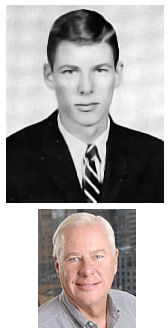
NOTE: You all remember the rather low-profile Larry Wilson of our Class of '64.
Well in the 44 years between these pictures - Larry's many successful endeavors have resulted in a long career in many investment fields. And 'low-profile' is no longer a term to describe this guy. One of the primary winning recipients of all this success has been the South Carolina Educational System. Read On...
From FORBES.COM...
Wilson has taken an active role in education in South Carolina, serving as a board member of the University of South Carolina Education Foundation and Research Campus Foundation, Columbia (S.C.) College, Allen University and the State's Education Oversight Committee. He has also received numerous awards; among them, the Yale University Cultural Leadership citation.
Wilson's accomplishments and achievements stretch back more than two decades. The Wall Street Transcript named him five times as one of the top three chief executive officers in the computer software and services industry. He has served on the boards of publicly and privately held software firms such as Legent, ISSCO and Computer Application Systems, Inc.